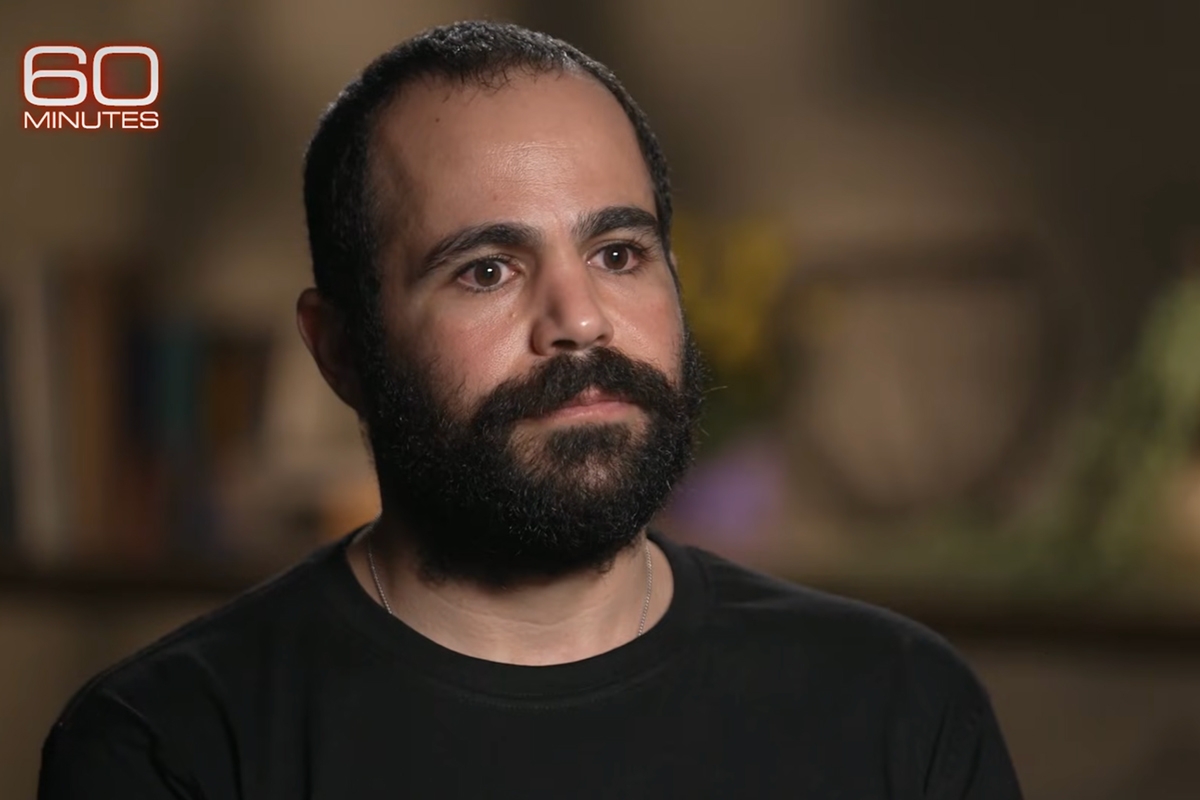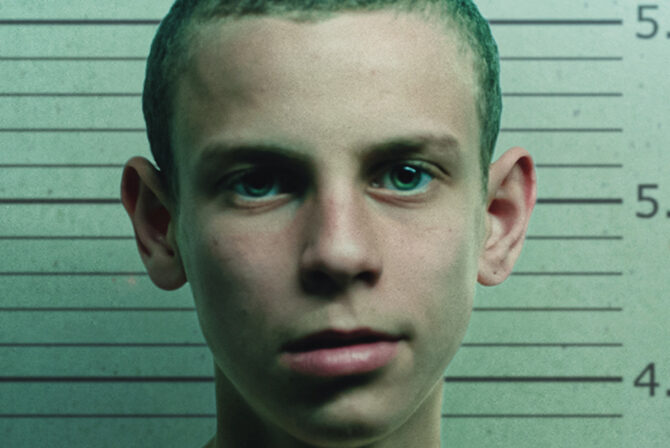Yarden Bibas, who returned from Hamas captivity last month, and whose wife and sons’ bodies were tragically returned for burial in Israel a few weeks later, just gave his first media interview. Of all places, he decided to give it to the longest running American news magazine program, “60 Minutes.” The reason? Bibas wants his best friend, David Cunio, and David’s brother, Ariel, back home, and he believes that only President Trump can get them there.
Along with Bibas, two other fathers released in the latest ceasefire deals spoke to host Lesley Stahl — Israeli-American Keith Siegel, kidnapped from Kfar Aza with his wife Aviva who was released in the first hostage deal, and Tal Shoham, 40, from Kibbutz Be’eri. Shoham was there with his wife Adi, who was raised in the kibbutz and their two children — Adi and the kids were also captured on October 7, and released in the first ceasefire deal in November of 2023.
Bibas shared an urgent message to President Trump: “Please stop this war and help bring all the hostages back.” He said, “I’m here because of Trump. I’m here only because of him… he has to convince Netanyahu and convince Hamas.”
When the veteran journalist asked Bibas if he believed that more fighting could bring the hostages home, he answered with a resolute no. Bibas also talked about some of the horrors of his captivity.
His captors told him early on that his wife and two children were killed by IDF bombings, and a video of him weeping for his wife and children was shared by the terror group. Yarden was told last month that they were killed by their captors, in cold blood with bare hands. He said that in captivity, those holding him kept telling him it wasn’t a big deal. “You get a new wife, new kids, better wife, better kids,” they repeated, over and over.
Bibas talked about the horrors of experiencing IDF bombardment while being held in the tunnels in Gaza. Not only did his treatment by his captives get worse, but he also felt each approaching air raid, saying the bombardment felt like “earthquakes, but underground.” He said he feared for his life at any given moment, and worried about the tunnel collapsing in on itself. Now that the fighting has resumed, he said, the lives of the 20-some hostages believed to still be alive are all in great risk.
Bibas spoke of David, whose wife and twin girls were also taken into captivity, though they were released in the 2023 hostage deal. He and David had been there for each other since first grade, for every big life moment. David was there for Yarden and Shiri’s wedding. And now that Yarden is going through the greatest upheaval of his life, grieving the loss of his wife and children while recovering from captivity, it is especially jarring for him to not be with David.
“I lost my wife and kids. Sharon must not lose her husband,” he said of Cunio’s wife.
Keith Siegel and his wife Aviva filmed their segment in their home in Kfar Aza, where Aviva showed them the second story window she jumped from on October 7. “I was in a shock,” she said. When they were brought underground, Keith said, they “were gasping for our breath” because of the air in the tunnels. Siegel spoke about what he witnessed being done in the tunnels, saying he saw a young woman being literally tortured by terrorists, as well as the sexual assault of female hostages. Siegel also spoke about how humiliated he felt when the militants shaved both his head and genitals.
After the first ceasefire deal ended, Aviva was returned home and the fighting resumed. Keith said that “the terrorists became very mean and very cruel and violent […] much more so.” He said that they beat him and he was purposely starved, with them taunting him by eating in front of him. Later in the interview, Siegel broke down in tears, unable to contain his suffering: like Shoham, Bibas, and others, Siegel has been fighting for his fellow hostages at the expense of his own recovery. “In a way, you are still there,” Stahl surmised. “Every day, most of the day,” Siegel responds, before starting to weep uncontrollably, laying his head on the table, shielding his face.
While walking through their destroyed kibbutz, the Siegels talked about Zivi and Gali, twins who were also captured from Kfar Aza and are still being held hostage, believed to be alive. “There needs to be a deal that will bring them back and finish with this whole thing,” Aviva said mournfully. In the show’s “Overtime” segment, the Siegels talked about their close connection with their fellow hostages, including Agam Berger. Aviva talked about how Agam’s smiled helped them, how Keith held Agam’s hand when she was scared during the bombing, and how she and Liri Albag helped pull him out of depression in the early days of captivity.
Keith spoke of the bonds the captives shared with each other, describing it as “a very strong bond, being able to look after each other physically or mentally, emotionally, psychologically, being supportive, having somebody to share thoughts, worries, concerns, fears.”
Perhaps the most arresting part of the show was when Tal Shoham was brought to speak to the parents of the two hostages he was with for all 471 of captivity, best friends Evyatar David and Guy Gilboa-Dalal, both captured from the Nova party — the two friends they attended the party with were murdered that day.
Shoham sat next to Eyatar’s mother and across from Guy’s parents as he recounted their torturous time in captivity. A video of the two witnessing other hostages being released and begging to be returned home was shared by Hamas last month. Stahl wondered how their parents could bear to watch the boys, but Evyatar’s mother, Galia, explained that it was a much-needed if horrendous sign of life from the son she worries about so desperately.
Looking into the eyes of Guy’s parents, including his mother Meirav, who recently revealed she went through open heart surgery after Guy’s capture due to what she called a “broken heart,” Shoham recalled how it took the young man five or six days to stop crying after being taken to Gaza. They spent all their time in Gaza in a narrow tunnel, where food was scarce and water sometimes tasted like blood, too salty to consume, but still, they drank. They found a way to get extra food out of one of their captors by offering him massages for a can of tuna and other small “treats” they could share.
“One of the toughest things that I heard from them, they told me more than once why stay alive now? I mean, why not take their own life with their own hand and to finish it? I mean to get released from this,” Shoham recalled.
“They are not children, but from time to time I felt like a father in there,” Shoham choked up while talking of the two boys, both in their early 20s, sharing how tortured he felt to leave them alone. Guy’s mother talked about how she hoped someone watching the program could help bring her beloved son home. “I want everyone to listen because this is our reality… Maybe someone will listen and save our sons,” she said.
The three hostages were on the program to bring a message that the majority of Israelis agree with: Stop this war and bring every last hostage home. As Stahl said, they are feeling a sense of “urgency and fear that time is running out.” We pray that their wishes come true soon so that they, and the rest of the recently released hostages who all are waiting for those they left behind, can finally begin to heal.








